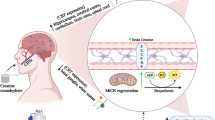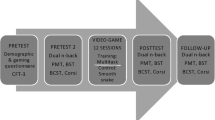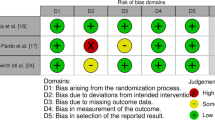Abstract
Learning to play a musical instrument is commonly recommended to avoid cognitive decline and dementia, but experimental evidence is lacking. In this Keys to Staying Sharp study, we investigated the efficacy of piano training as compared to music listening instruction to improve auditory processing, cognition, and everyday function among older adults with and without mild cognitive impairment (MCI). Older adult participants with and without MCI (n=268) included 58% females; 16% identified as Black race and 8.2% reported Hispanic ethnicity. Education ranged from 11 to 20 years. Participants were randomly assigned to either piano training (n=133) or an active control group of music listening instruction (n=135). Group training sessions were led by an instructor for 90 min twice a week for 20 sessions. Measures of auditory processing (time compressed speech, words-in-noise, dichotic digits test, dichotic sentence identification, adaptive tests of temporal resolution), cognition (trail making test, digit coding, verbal fluency), and everyday function (timed instrumental activities of daily living, test of everyday attention) were administered at baseline and immediately post the intervention phase. Analyses were registered at Open Science Framework https://osf.io/sh27y/ on April 25, 2018. Relative to music listening, no significant effects of piano training on auditory processing, cognition, or everyday function were found (ps>0.265). Future research should continue to examine the connection of impaired auditory processing with subsequent dementia and investigate whether effectively enhancing auditory processing by intervention may reduce dementia risk.

Similar content being viewed by others
Data Availability
The data that support the findings of this study are available upon request to Principal Investigator Edwards via our website: https://health.usf.edu/medicine/labs/cna-lab or by emailing usfcognitiveagelab@usf.edu and with completion of a data use agreement. Supplemental data including raincloud plots of individual assessment and composite variables are available at https://osf.io/fcphq.
Change history
01 July 2023
A Correction to this paper has been published: https://doi.org/10.1007/s41465-023-00268-9
References
Albers, M. W., Gilmore, G. C., Kaye, J. A., Murphy, C., Wingfield, A., Bennett, D. A., & Zhang, L. I. (2015). At the interface of sensory and motor dysfunctions and Alzheimer’s disease. Alzheimer’s & Dementia: The Journal of the Alzheimer’s Association, 11, 70–98. https://doi.org/10.1016/j.jalz.2014.04.514
American Speech-Language-Hearing Association. (2005). Guidelines for manual pure-tone threshold audiometry [guidelines]. Retrieved from www.asha.org/policy
Bugos, J. A. (2010). The benefits of music instruction on processing speed, verbal fluency, and cognitive control in aging. Music Education Research International, 4, 1–9.
Bugos, J. A. (2019). The effects of bimanual coordination in music interventions on executive functions in aging adults. Frontiers in Integrative Neuroscience, 13, 68. https://doi.org/10.3389/fnint.2019.00068
Bugos, J. A., & Groner, A. (2009). The effects of instrumental training on non-verbal reasoning in eighth-grade students. Research Perspectives in Music Education, 14, 14–19.
Bugos, J. A., & Kochar, S. (2017). Efficacy of a short-term intense piano training on cognitive aging. Musicae Scientae, 21(2), 137–150. https://doi.org/10.1177/1029864917690020
Bugos, J. A., & Wang, Y. (2022). Piano training enhances executive functions and psychosocial outcomes in aging: Results of a randomized controlled trial. Journals of Gerontology. Series B, Psychological Sciences and Social Sciences, 77, 1625–1636. https://doi.org/10.1093/geronb/gbac021
Bugos, J. A., Perlstein, W. M., McCrae, C. S., Brophy, T. S., & Bedenbaugh, P. H. (2007). Individualized piano instruction enhances executive functioning and working memory in older adults. Aging & Mental Health, 11(4), 464–471. https://doi.org/10.1080/13607860601086504
Delis, D. C., Kaplan, E., & Kramer, J. H. (2001). Delis-Kaplan Executive Function System (D-KEFS). The Psychological Corporation.
Dorris, J. L., Neely, S., Terhorst, L., VonVille, H. M., & Rodakowski, J. (2021). Effects of music participation for mild cognitive impairment and dementia: A systematic review and meta-analysis. Journal of the American Geriatrics Society, 69, 2659–2667. https://doi.org/10.1111/jgs.17208
Dubinsky, E., Wood, E. A., Nespoli, G., & Russo, F. A. (2019). Short-term choir singing supports speech-in-noise perception and neural pitch strength in older adults with age-related hearing loss. Frontiers in Neuroscience, 28, 1153. https://doi.org/10.3389/fnins.2019.01153
Edwards, J. D., Clark, D., Xu, H., Guey, L. T., Ross, L. A., & Unverzagt, F. W. (2017). Speed of processing training results in lower risk of dementia. Alzheimer’s & Dementia: Translational Research & Clinical Interventions, 3, 603–611. https://doi.org/10.1016/j.trci.2017.09.002
Edwards, J. D., Lister, J. J., Elias, M. N., Tetlow, A. M., Sardina, A. L., Sadeq, N. A., & Harrison Bush, A. L. (2017). Auditory processing of older adults with probable mild cognitive impairment. Journal of Speech, Language, and Hearing Research, 60, 1427–1435. https://doi.org/10.1044/2016_JSLHR-H-16-0066
Faul, F., Erdfelder, E., Lang, A. G., & Buchner, A. (2007). G*Power 3: A flexible statistical power analysis program for the social, behavioral, and biomedical sciences. Behavior Research Methods, 39(2), 175–191.
Fifer, R. C., Jerger, J. F., Berlin, C. I., Tobey, E. A., & Campbell, J. C. (1983). Development of a dichotic sentence identification test for hearing-impaired adults. Ear and Hearing, 4(6), 300–305.
Gates, G. A., Cobb, J. L., Linn, R. T., Rees, T., Wolf, P. A., & D’Agostino, R. B. (1996). Central auditory dysfunction, cognitive dysfunction, and dementia in older people. Archives of Otolaryngology - Head and Neck Surgery, 122(2), 161–167.
Gates, G. A., Beiser, A., Rees, T. S., D’Agostino, R. B., & Wolf, P. A. (2002). Central auditory dysfunction may precede the onset of clinical dementia in people with probable Alzheimer’s disease. Journal of the American Geriatrics Society, 50(3), 482–488. https://doi.org/10.1046/j.1532-5415.2002.50114.x
Gates, G. A., Anderson, M. L., Feeney, M. P., McCurry, S. M., & Larson, E. B. (2008). Central auditory dysfunction in older persons with memory impairment or Alzheimer dementia. Archives of Otolaryngology - Head and Neck Surgery, 134(7), 771–777. https://doi.org/10.1001/archotol.134.7.771
Gates, G. A., Anderson, M. L., McCurry, S. M., Feeney, M. P., & Larson, E. B. (2011). Central auditory dysfunction as a harbinger of Alzheimer dementia. Archives of Otolaryngology - Head and Neck Surgery, 137(4), 390–395. https://doi.org/10.1001/archoto.2011.28
Good-Lite. (2010). Sloan letter near vision card. Retrieved from www.good-lite.com
Green, C. S., Bavelier, D., Kramer, A. F., Vinogradov, S., Ansorge, U., Ball, K. K., ... & Witt, C. M. (2019). Improving methodological standards in behavioral interventions for cognitive enhancement. Journal of Cognitive Enhancement, 3, 2–29. https://doi.org/10.1007/s41465-018-0115-y
Hudak, E. M., Bugos, J. A., Andel, R., Lister, J. J., Ji, M., & Edwards, J. D. (2019). Keys to staying sharp: A randomized clinical trial of piano training among older adults with and without mild cognitive impairment. Contemporary Clinical Trials, 84, 105789. https://doi.org/10.1016/j.cct.2019.06.003
Idrizbegovic, E., Hederstierna, C., Dahlquist, M., Kampfe Nordstrom, C., Jelic, V., & Rosenhall, U. (2011). Central auditory function in early Alzheimer’s disease and in mild cognitive impairment. Age and Ageing, 40(2), 249–254. https://doi.org/10.1093/ageing/afq168
Kraus, N., & Chandrasekaran, B. (2010). Music training for the development of auditory skills. Nature Reviews Neuroscience, 11, 599–605. https://doi.org/10.1038/nrn2882
Li, H., Wang, H., Fan-Hao, C., & Chen, K. (2015). The effect of music therapy on cognitive functioning among older adults: A systematic review and meta-analysis. Journal of the American Medical Directors Association, 16, 71–77. https://doi.org/10.1016/j.jamda.2014.10.004
Lister, J., Roberts, R., Shackelford, J., & Rogers, C. (2006). An adaptive clinical test of temporal resolution. American Journal of Audiology, 15, 133–140. https://doi.org/10.1044/1059-0889(2006/017)
Merten, N., Fischer, M. E., Dillard, L. K., Klein, B. E., Tweed, T. S., & Cruickshanks, K. J. (2021). Benefit of musical training for speech perception and cognition later in life. Journal of Speech, Language, and Hearing Research, 64, 2885–2896.
Mishra, S. K., Panda, M. R., & Herbert, C. (2014). Enhanced auditory temporal gap detection in listeners with musical training. Journal of the Acoustical Society of America, 136(2), EL173–EL178.
Nasreddine, Z. S., Phillips, N. A., Bedirian, V., Charbonneau, S., Whitehead, V., Collin, I., & Chertkow, H. (2005). The Montreal Cognitive Assessment, MoCA: A brief screening tool for mild cognitive impairment. Journal of the American Geriatrics Society, 53, 695–699.
O’Brien, J. L., Nikeh, D., & Lister, J. J. (2015). Interaction of musicianship and aging: A comparison of cortical auditory evoked potentials. Behavioural Neurology, 2015, 1–12. https://doi.org/10.1155/2015/545917
Owsley, C., Sloane, M., McGwin, G., & Ball, K. (2002). Timed instrumental activities of daily living tasks: Relationship to cognitive function and everyday performance assessments in older adults. Gerontology, 48(4), 254–265. https://doi.org/10.1159/000058360
Parbery-Clark, A., Strait, D. L., Hittner, E., & Kraus, N. (2013). Musical training enhances neural processing of binaural sounds. The Journal of Neuroscience, 33(42), 16741–16747. https://doi.org/10.1523/JNEUROSCI.5700-12.2013
Potts, G., Liotti, M., Tucker, D., & Posner, M. I. (1996). Frontal and inferior temporal cortical activity in visual target detection: Evidence from high spatially sampled event-related potentials. Brain Topography, 9, 3–14.
Pourryaghoub, G., Mehrdad, R., & Pourhosein, S. (2017). Noise-induced hearing loss among professional musicians. Journal of Occupational Health, 59, 33–37. https://doi.org/10.1539/joh.16-0217-OA
Rabipour, S., & Davidson, P. S. (2015). Do you believe in brain training? A questionnaire about expectations of computerized cognitive training. Behavioural Brain Research. https://doi.org/10.1016/j.bbr.2015.01.002
Rebok, G. W., Ball, K., Guey, L. T., Jones, R. N., Kim, H. Y., King, J. W., & Willis, S. L. (2014). Ten-year effects of the advanced cognitive training for independent and vital elderly cognitive training trial on cognition and everyday functioning in older adults. Journal of the American Geriatrics Society, 62(1), 16–24. https://doi.org/10.1111/jgs.12607
Reitan, R. M., & Wolfson, D. (1985). The Halstead-Reitan Neuropsychological Test Battery. Neuropsychological Press.
Robertson, I. H., Ward, T., Ridgeway, V., & Nimmo-Smith, I. (1996). The structure of normal human attention: The test of everyday attention. The Journal of the International Neuropsychological Society, 2(6), 525–534. https://doi.org/10.1017/S1355617700001697
Schnick, T., Kreutz, G., Busch, V., Pigeot, I., & Ahrens, W. (2014). Incidence and relative risk of hearing disorders in professional musicians. Occupational and Environmental Medicine, 71, 472–476. https://doi.org/10.1136/oemed-2014-102172
Seidler, R. D., Bernard, J. A., Burutolu, T. B., Fling, B. W., Gordon, M. T., Gwin, J. T., & Lipps, D. B. (2010). Motor control and aging: Links to age-related brain structural, functional, and biochemical effects. Neuroscience and Biobehavioral Reviews, 34(5), 721–733. https://doi.org/10.1016/j.neubiorev.2009.10.005
Seinfeld, S., Figueroa, H., Ortiz-Gil, J., & Sanchez-Vives, M. V. (2013). Effects of music learning and piano practice on cognitive function, mood, and quality of life in older adults. Frontiers in Psychology, 4, 810. https://doi.org/10.3389/psyg.2013.00810
Sheikh, J. I., & Yesavage, J. A. (1986). Geriatric Depression Scale (GDS): Recent evidence and development of a shorter version. Clinical Gerontologist: The Journal of Aging and Mental Health, 5, 1–2, 165–173. https://doi.org/10.1300/J018v05n01_09
Simons, D. J., Boot, W. R., Charness, N., Gathercole, S. E., Chabris, C. F., Hambrick, D. Z., & Stine-Morrow, E. A. L. (2016). Do “Brain-training” programs work? Psychological Science in the Public Interest, 17(3), 103–186. https://doi.org/10.1177/1529100616661983
Strouse, A., & Hall, J. W., 3rd. (1995). Test-retest reliability of a dichotic digits test for assessing central auditory function in Alzheimer’s disease. Audiology, 34(2), 85–90.
Verghese, J., Lipton, R. B., Katz, M., Hall, C. B., Derby, C. A., Kuslansky, G., & Buschke, H. (2003). Leisure activities and the risk of dementia in the elderly. New England Journal of Medicine, 348(25), 2508–2516. https://doi.org/10.1056/NEJMoa022252
Wan, C. Y., & Schlaug, G. (2010). Music making as a tool for promoting brain plasticity across the lifespan. Neuroscientist, 16, 566–577. https://doi.org/10.1177/1073858410377805
Wilson, R. H., Salomon, D. L., Sperry, J. L., & Bornstein, S. P. (1994). Effects of time compression and time compression plus reverberation on the intelligibility of Northwestern University Auditory Test No.6. Journal of the American Academy of Audiology, 5, 269–277.
Wilson, R. H., Abrams, H. B., & Pillion, A. L. (2003). A word-recognition task in multitalker babble using a descending presentation mode from 24 dB to 0 dB signal to babble. Journal of Rehabilitation Research and Development, 404(4), 321–328. https://doi.org/10.1682/jrrd.2003.07.0321
Worschech, F., Marie, D., Jünemann, K., Sinke, C., Krüger, T. H. C., Großbach, M., & Altenmuller, E. (2021). Improved speech in noise perception in the elderly after 6 months of musical instruction. Frontiers in Neuroscience, 15, 696240. https://doi.org/10.3389/fnins.2021.696240
Zendel, B. R., & Alain, C. (2012). Musicians experience less age-related decline in central auditory processing. Psychology and Aging, 27(2), 410–417. https://doi.org/10.1037/a0024816
Acknowledgements
We acknowledge the contributions of Drs. Jennifer Bugos and Ming Ji who were Co-Investigators of the grant and helped to plan the study protocol. Dr. Bugos also administered piano training intervention classes and contributed to prior versions of a manuscript. Thanks to Trieva Pelonero, who helped to compile data and check tables for the manuscript. We would like to thank the staff, students, and volunteers of the USF Cognitive Aging Lab and the Music Research and Testing Lab for their contributions to data collection. Thank you also to our study participants.
Funding
Research reported in this manuscript was supported by the National Institute on Aging of the National Institutes of Health (R01 AG056428, PI Edwards). The study was supported 100% by NIH funding, which included $2,157,954 total project costs. The content is solely the responsibility of the authors and does not necessarily represent the official views of the National Institutes of Health. The sponsor did not play a role in the design, methods, subject recruitment, data collection, analysis, or preparation of this manuscript.
Author information
Authors and Affiliations
Contributions
Funding was acquired and the study protocol was designed by JDE, JJL, EH, and RA. EH handled randomization and coordinated data collection. JDE and RA analyzed the data. JDE, JJL, EH, and RA drafted and edited this manuscript.
Corresponding author
Ethics declarations
Conflict of Interest
All authors certify that they have no affiliations with or involvement in any organization or entity with any financial interest or non-financial interest in the subject matter or materials discussed in this manuscript. Data will be made available through completion of requests online (https://health.usf.edu/medicine/labs/cna-lab) and analytic methods will be made available to other researchers upon request to usfcognitiveaginglab@gmail.com.
Additional information
Publisher's Note
Springer Nature remains neutral with regard to jurisdictional claims in published maps and institutional affiliations.
Rights and permissions
Springer Nature or its licensor (e.g. a society or other partner) holds exclusive rights to this article under a publishing agreement with the author(s) or other rightsholder(s); author self-archiving of the accepted manuscript version of this article is solely governed by the terms of such publishing agreement and applicable law.
About this article
Cite this article
Lister, J.J., Hudak, E.M., Andel, R. et al. The Effects of Piano Training on Auditory Processing, Cognition, and Everyday Function. J Cogn Enhanc 7, 97–111 (2023). https://doi.org/10.1007/s41465-023-00256-z
Received:
Accepted:
Published:
Issue Date:
DOI: https://doi.org/10.1007/s41465-023-00256-z




